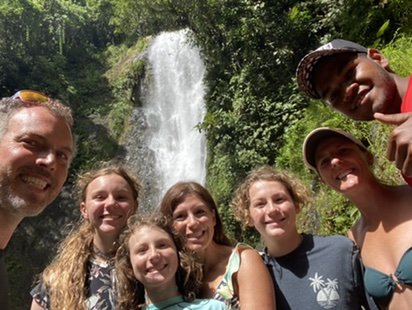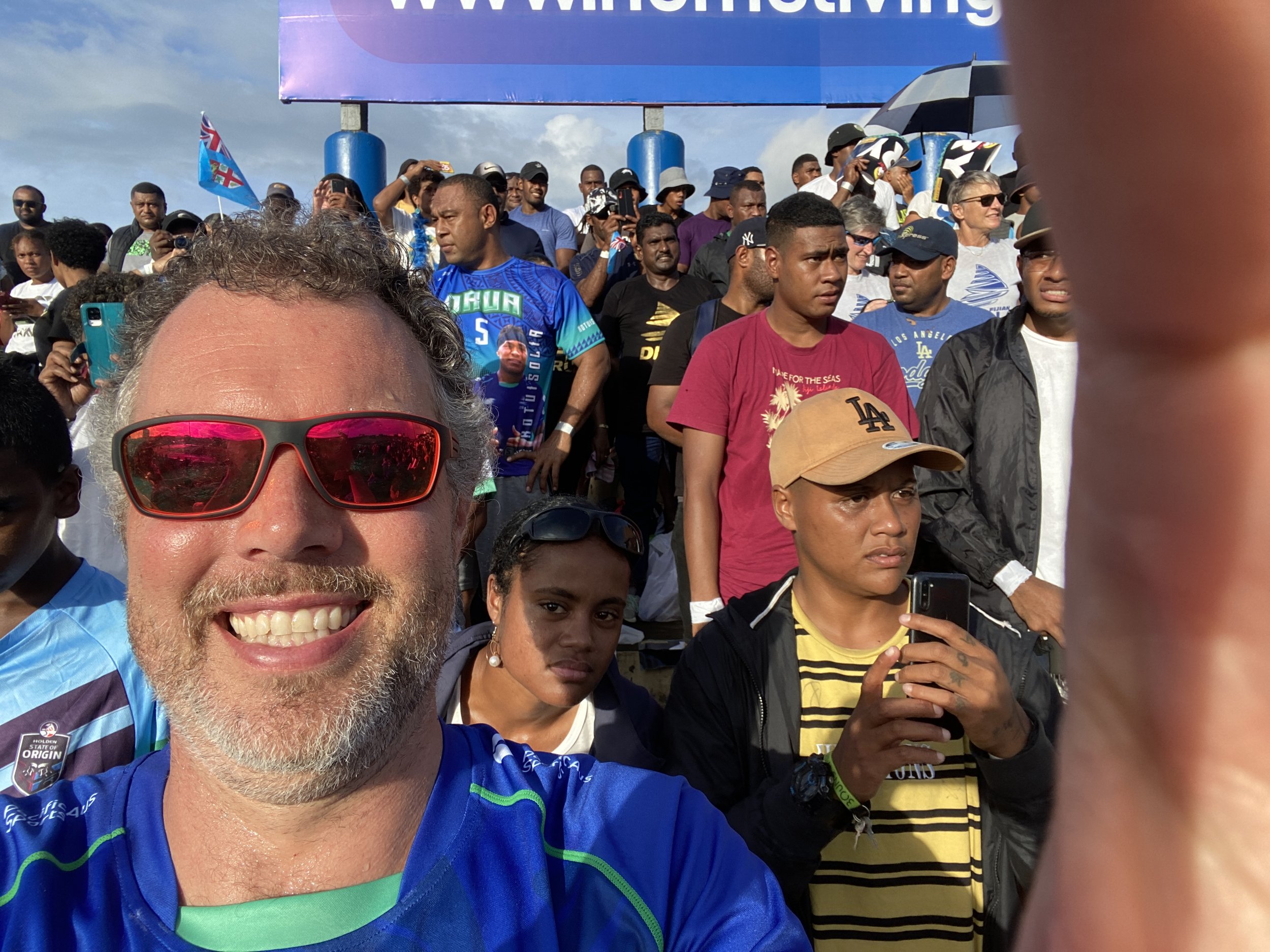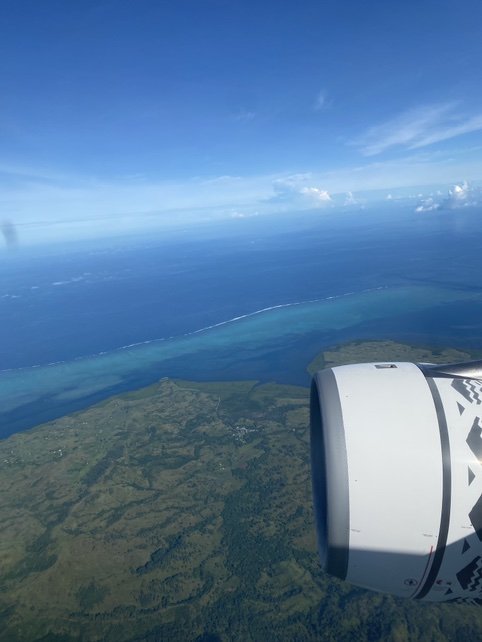Wananavu
The Fijian language rolls out of the mouth in a melodic and expressive flow that is almost musical. "Bula" is the most common word we hear, at once hello, goodbye, life, and good. But the word I have loved the most is "Wananavu" – which translates as somewhere between beautiful and awesome.
Fiji is Wananavu
The natural beauty is truly remarkable. We took a river boat up to villages beyond where roads reach, which was stunning in a way that is remarkable even to us at this point in our adventures. The village itself stands almost outside of time, similar to the Masai village we visited. Thought it was in the route of an organized tour, there wasn't a show of any kind - except the running of puppies (the dogs are used to hurt wild boars) and chickens.
Our guides, one of whose grandmother is from the village, explain that the children go to primary school up the river, a trip that takes 2.5 hours and two boat portages. As young as 5 years old, the children stay Monday to Friday in a dorm at the school. Our kids are saucer-eyed. “Hard pass," says Paul.
For high school, at least one parent moves with them to the city and finds work. I ask how many take this step. Veg, our boat guide, look at me like I am crazy. "All of them." he says. "This is their future."
Like the Masai, I can't help but wonder how many children who are exposed to that life will return to live in this village. I suspect not many.
We are the only guests at our tiny villa complex looking out over breaking waves, which are a constant background noise. The weather has not cooperated with our desires to surf or dive for most of the week, but time by the pool and around the house is lovely - even in the occasional rain.
A break in the weather on our last day gets packed with two dives (including one where we saw sharks eat - Sophia and got to touch them), a village market, and a Rugby game.
The frequency of COVID testing we needed (entry, 24-72 hours after entry, and pre-departure) made us a regular feature in the local village pharmacy, run by a small army of ethnic Indian women, with whom we were soon joking and laughing. It says something about us now that, when we stopped for our final tests between the dive and the game, I thought nothing of sending the kids by themselves (together) through the Saturday market full of people selling pineapples and tapioca from rugs on the ground and impromptu stands. And maybe it says more that they took my vague directions and just went.
“Kids, go find mom! She’s that way.”
To describe to people here as nice is to describe the weather as “warm.” One example: we arrived at the game just before kickoff and our seats were "on the concrete bleachers." We wandered for several minutes looking at what seemed like completely packed row after packed row before a woman flagged us down and welcomed us to a space in what turned out to be her family’s section. By the end of the first period we were sharing chips and Starbursts, fist bumping and screaming as the Drua made several long runs (though they ultimately came up short against a team from the South Island of New Zealand).
Our drivers, part of the island's minority Muslim population, were proud spokespeople for the multi-cultural nature of the country. They proudly pointed out parks and government buildings, talked about hydropower, and They talked about how excited they were for the upcoming Eid celebrations, the first since COVID locked the island down, and in the same breath hoped for a great Diwali this fall. They
As we fly away, I cannot help but compare to our time on another rainy island - Fiji over Sicily every time.















